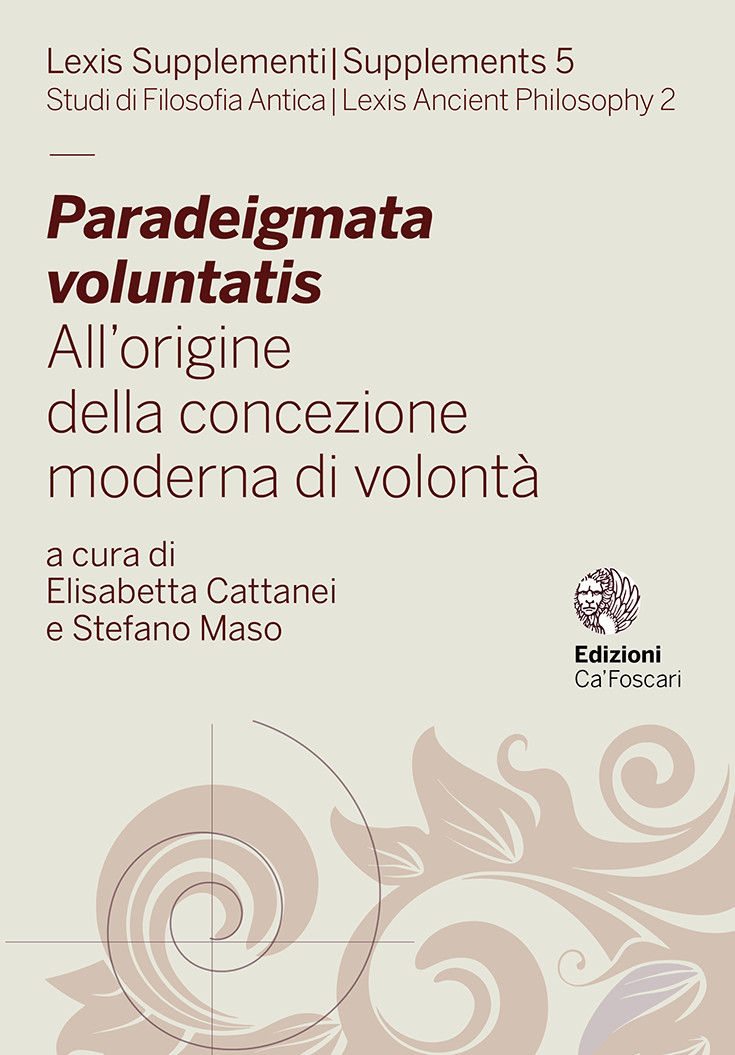Collana |
Lexis Supplementi
Miscellanea | Paradeigmata voluntatis
Capitolo | ‘Desiderium voluntas non est’
‘Desiderium voluntas non est’
Abstract
Starting from the definition of Cic. Tusc. 4.12, voluntas appears as the most suitable Latin translation for βούλησις. But βούλησις only partially corresponds to what both Cicero and Seneca mean by voluntas. From the Roman perspective it seems that ‘wanting’ is immediately connected to ‘desiring’, provided that a rational dimension is recognized in ‘desiring’. But this is a stretch, because desiderium, and even more cupiditas or adpetitio, in themselves refer to an irrational dimension. From the Greek perspective, then, this juxtaposition does not appear so obvious at all. The act of will (or, better, the exercise of a choice intended to produce an action) maintains its own identity with respect to ‘desiring’ precisely by virtue of its autonomous manifestation in immediate consonance with reason; especially Aristotle and the Stoic school insist on this. Therefore, desiderium and cupiditas approximate rather to ἐπιθυμία (while adpetitio to ὁρμή), that is to say to an area where the absence of reason prevails: here are the θυμός and the πάθος. Both Cicero and Seneca, when they must refer to the voluntas avoiding any misunderstanding involving the irrationality of deciding, specify that in those cases it is a question of recta voluntas: the will expressed in a rational way.
Presentato: 26 Aprile 2021 | Accettato: 23 Novembre 2021 | Pubblicato 13 Dicembre 2021 | Lingua: it
Keywords Cicero • Seneca • Will • Desire • βούλησις • Voluntas
Copyright © 2021 Stefano Maso. This is an open-access work distributed under the terms of the Creative Commons Attribution License (CC BY). The use, distribution or reproduction is permitted, provided that the original author(s) and the copyright owner(s) are credited and that the original publication is cited, in accordance with accepted academic practice. The license allows for commercial use. No use, distribution or reproduction is permitted which does not comply with these terms.
Permalink http://doi.org/10.30687/978-88-6969-583-4/003
